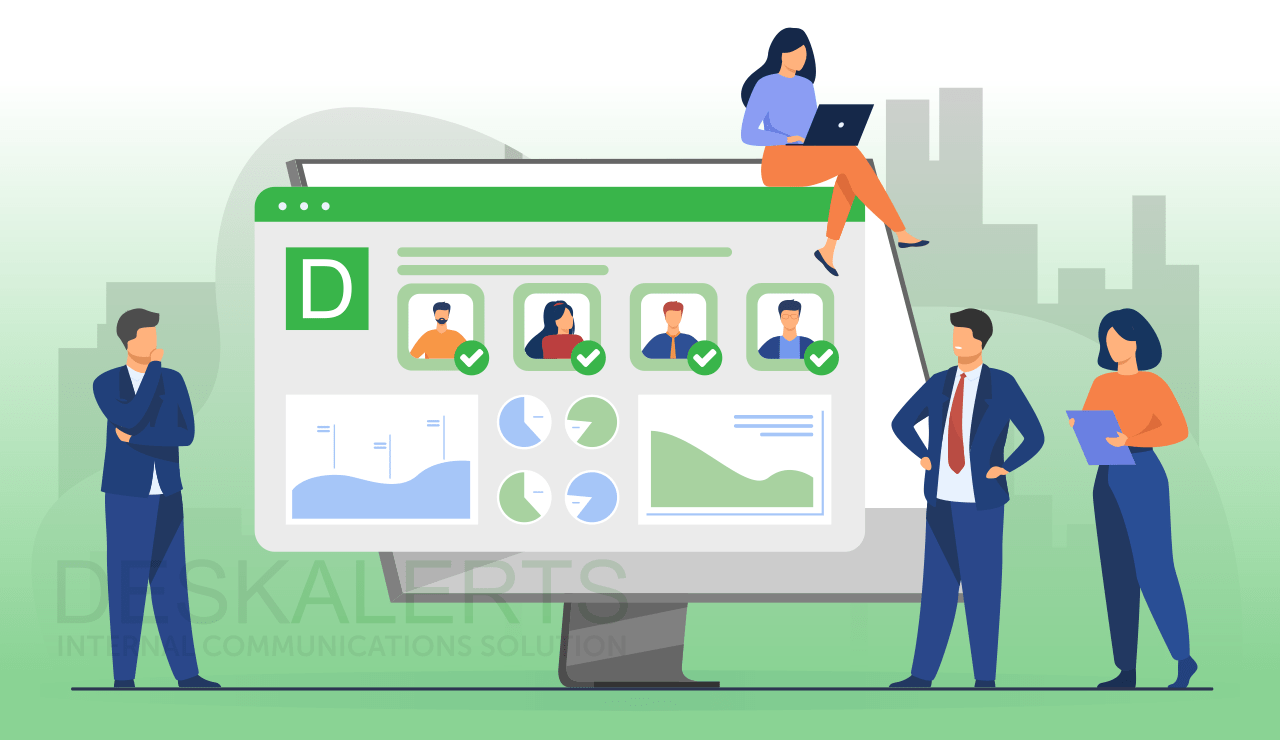 Business continuity is about having a plan for when emergencies or difficult situations may arise.
Business continuity is about having a plan for when emergencies or difficult situations may arise.
These situations could be categorized as internal or external threats. Business operations need to continue uninterrupted under any circumstances. It can cost a lot of money to get a company back on track after a long unexpected break. The continuation of the flow, the maintenance of essential functions throughout and after a disaster occurs, can help your customers feel that they can rely on a company that always has their backs.
Your company can be the one that has been around for 25+ years, with experience and wealth to share. However, business continuity will play a huge part in making that dream happen.
Several tools can help a business create and manage a plan of continuity — you can get your whole company on board with the right type of business continuity management program.
Table of contents
What is business continuity management (BCM)
Threats that business continuity management program solutions should cover and prepare for
What kind of software is needed for business continuity success
15 Best Business Continuity Management Tools
Why communication is crucial for business continuity
What is business continuity management (BCM)
BCM is defined as the dedication to planning effective ways to respond to technical and operational risks which could threaten an organization's recovery time.
A business continuity management system will be the framework, program, or company structure that your staff will be required to follow when at the office or even when remotely working.

This process includes advanced planning and preparation for when something unexpected occurs — as well as how to resume operations in the best way after the threat has passed.
Prevention and awareness are the first steps to continuity, which enables the continuous delivery of important services and products to customers.
3 main risks of not forming a BCM program for your business:
- Excessive downtime
- Lost productivity
- Incurred costs
Read also: Business Continuity vs Disaster Recovery – What's the Difference?
Threats that business continuity management program solutions should cover and prepare for
In the process of continuity management, a business will have to identify and list all possible risks — internal or external.
This is also known as a BCP or Business Continuity Plan.
A BCP will contain a collection of resources, procedures, actions, and information to inform staff on how to operate in a tough situation.
- Insider and outsider cyber hacking attacks — a company is hit by ransomware attacks every 40 seconds
- Protect customer data that includes names, addresses, social security numbers, and more
- Have a plan that includes what to do if there is a data breach — meaning a hacker might be trying to access that sensitive information in your company's files
- How to deal with or correct human errors — an employee could make a typo in the code, or accidentally unplug a wire and shut down a whole day of operations.
- File backup failure — make sure all necessary files are backed up to one place so that if you need to move them, you know where everything is.
Read also: Ransomware Quizz for the Employees to Raise Awareness.
The Role of Business Continuity Planning Software
Implementing a successful business continuity strategy requires more than just plans on paper—it demands tools that enable real-time decision-making, collaboration, and response. This is where business continuity planning software proves essential. It offers the technological backbone to support your organization in building resilience and ensuring operational continuity.
Benefits of Business Continuity Planning Software
-
Proactive Risk Management
Identify potential threats and vulnerabilities before they impact operations using advanced analytics and reporting tools built into the software.
-
Streamlined Response Planning
Create, customize, and implement continuity strategies with ease. Templates and workflows reduce planning time and improve efficiency.
-
Integrated Solutions for Crisis Management
A complete business continuity solution includes real-time communication capabilities, automated notifications, and centralized data access for seamless decision-making during crises.
-
Regulatory Compliance
Stay compliant with industry standards and regulations by maintaining auditable records of your continuity plans and updates.
Business continuity solutions are essential, but many lack effective communication. Add emergency notification software (either cloud-based or on-premise) to your BC toolkit for better crisis preparedness. Learn more about business continuity in the cloud.
What kind of software is needed for business continuity success
The most common way that organizations have been keeping track of issues leading to hidden cracks and vulnerabilities has been by manually using spreadsheets, such as shared drives or Microsoft Office.
This type of software use becomes chaotic and unreliable in cases where files are lost through email or when you need to get information out immediately to your staff (response times can be delayed).
The software or program that will keep a business running continuously no matter what circumstances may arise — will need to have a secure and reliable communication system in place.
Managers should be able to feel certain that urgent messages have successfully reached their employees and various leaders, knowing that they are now informed by having read the full message or alert.
It can be difficult to get all necessary leaders on board with a continuity program, so the software must be easy to use for all tech levels — while having quick, reliable back and forth communication.
Features that the best business continuity software should have:
- Automation tools
- Educational tools that will give you the intelligence to solve problems
- A way to close resolved issues and keep track of them in a spreadsheet format
- Program management
- Safeguards your staff, resources, and brand
15 Best Business Continuity Management Tools
1. Archer Business Resiliency:
Allows you to identify and keep track of the critical processes and systems your business must follow to develop continuity. There are disaster recovery plans to protect your organization from disruption.
2. Asigra:
This software is built for cloud-computing projects and is designed to offer backup efficiencies with data compression technology. There is an instant recovery feature that allows for less system downtime, continuous data protection, and more.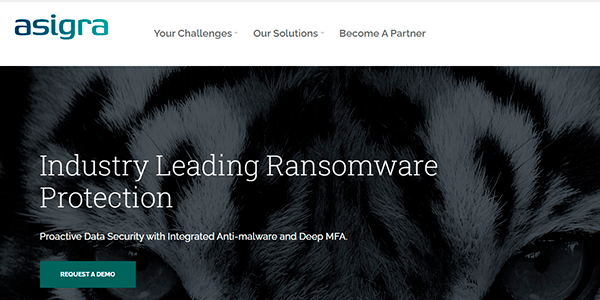
3. Datto Unified Continuity:
Protects against ransomware, and can recover absolutely anything that gets deleted. Includes multiple security layers to protect client data, plus more. 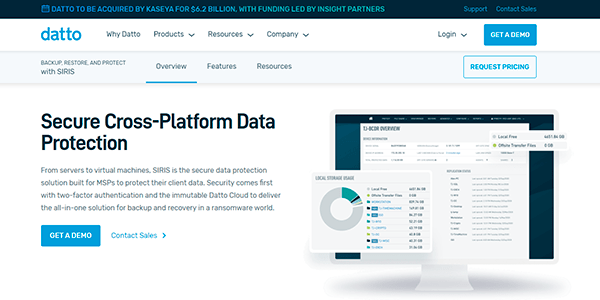
4. Fusion Risk Management:
Transform your company digitally and gain resiliency. Find out how your specific company works, how it breaks, and how to put it all back together.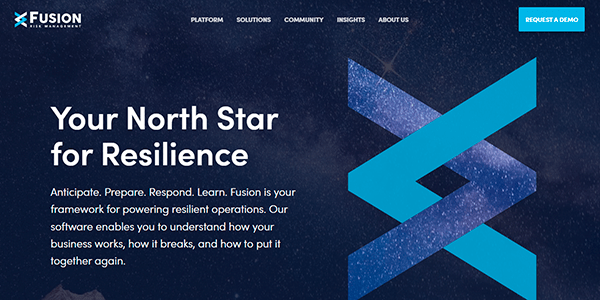
5. NContracts:
Includes services and software for total integration of risk management and staff compliance. Interactive dashboard with tools that allow you to see where your company stands within each risk category, and more.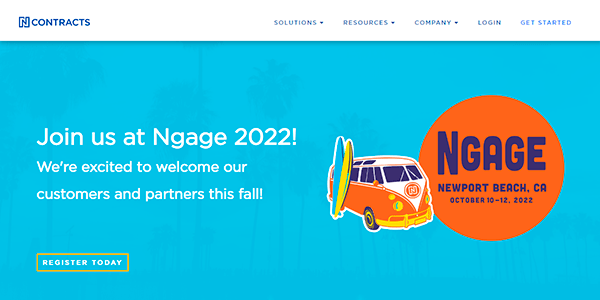
6. Castellan:
This is a cloud-based architecture that contains features such as — program automation, system integration, plus risk assessment, and business impact analysis.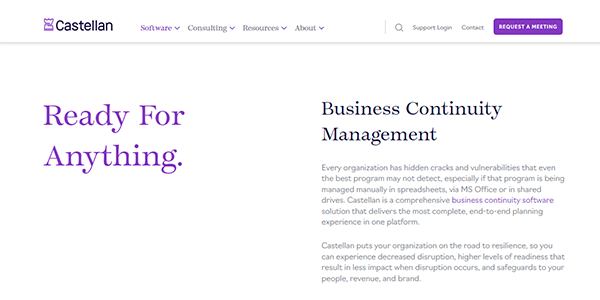
7. iGrafX Business Transformation Platform:
This software highlights and captures the red flags while making critical business connections— with detailed analysis and optimization solutions. Features also include educational services for onboarding new staff and collaboration ease. 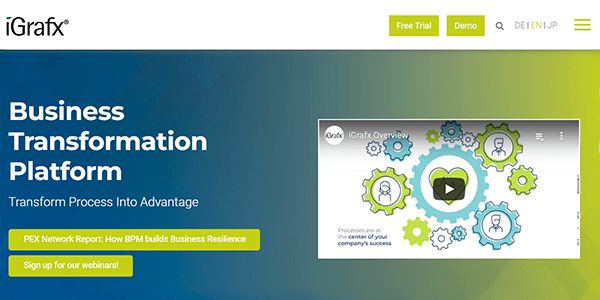
8. Carbonite:
Uninterrupted access to critical business data, plus structured and repeatable data migration — to and from any type of platform.
9. Upsafe:
All in one platform for tech companies to manage their security program. Allows you to build a roadmap, follow set guides, and even get certified in specific areas where your company may need extra attention.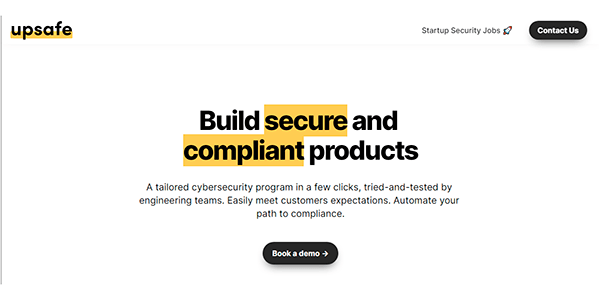
10. CLDigital:
Provides leaders with risk and resilience data to make smart continuity decisions. They have a mobile app option, plus risk assessments, business impact analysis (BIA), and even visual graphs to measure data.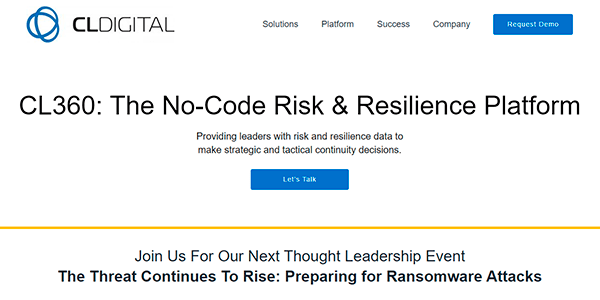
11. Interos:
Uses the power of AI and machine learning to monitor and model your entire supply chain. Builds adaptability and responsiveness.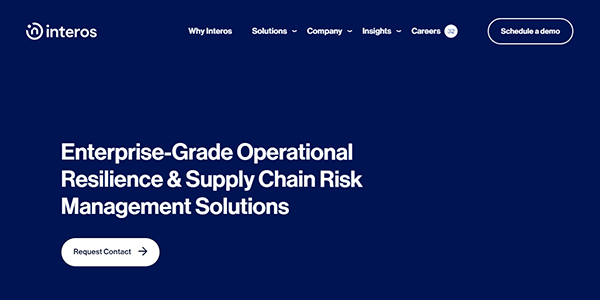
12. Diligent:
A single, easy-to-use platform that protects against data breaches, stays ahead of cyber risks and helps leaders to make informed risk decisions. You can identify critical threats and assign controls to dissolve the issues quickly.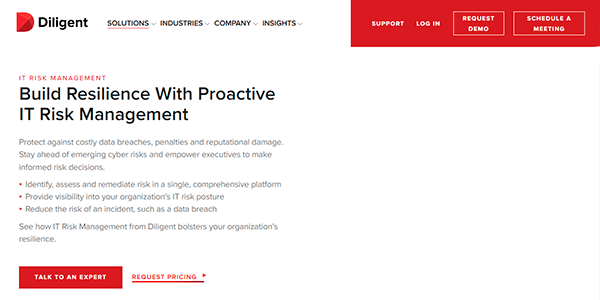
13. OneTrust:
Powered by OneTrustAthena™ AI and robotic automation engine with capabilities that include agile workflows across privacy, security, data governance, and more.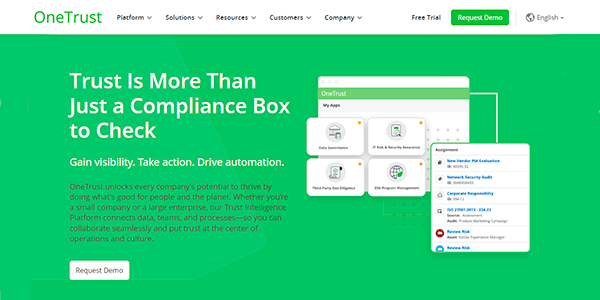
14. Oracle Fusion Cloud Risk Management and Compliance:
A security and audit solution that controls user access to your Oracle Cloud ERP financial data, monitors user activity with AI, plus audits transactions to prevent fraudulent activity from occurring.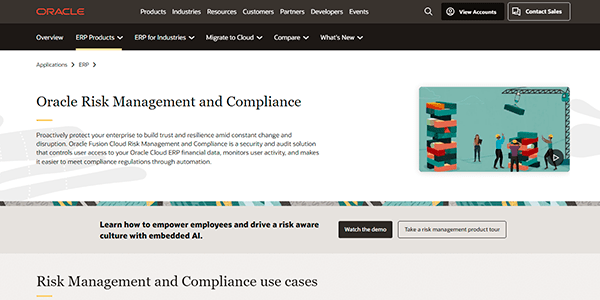
15. DeskAlerts:
A reliable internal communications system, that allows you to quickly communicate with employees in case of any emergency including IT emergencies. Their messaging features allow you to send important step-by-step instructions immediately, informing staff on what to do.
Fast feedback via surveys, streamlined communication between staff and IT teams, 100% readability rate with emergency pop-up notifications, multiple communication channels that can be used simultaneously, intergration with MS Teams and more.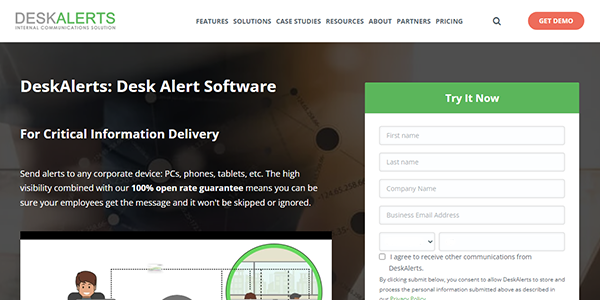
Why communication is crucial for business continuity
Internal communication within a business and between staff members is crucial to keep everyone on the same page at all times. If an emergency arises, your staff and team members are alerted immediately, so they can carry out any action plans that have been assigned.
Without fast and effective internal communication system for business that guarantees employees will read everything they need to — messages can get lost and forgotten about.
If staff members are sent urgent messages only through email or printed out newsletters, they can easily throw it away, delete the email, and ignore the whole situation. DeskAlerts guarantees that your employees and IT team will always read every urgent message managers send them.
Learn more about an IT outage notification solution.
With DeskAlerts desktop pop-ups, directors can block their employee’s entire screen for one minute, preventing them from proceeding until they have read the full urgent message.
A statistics module is also available so managers can track who has read or opened the messages, and who has not.These features can help you demonstrate your communication efforts.
The mobile app allows you to send employees corporate emergency alerts, surveys, polls, quizzes, event RSVPs, video messages, internal newsletters, and more.
You can even use the one-click app for emergencies, which allows you to send pre-planned emergency messages with just one click.
DeskAlerts can simplify, organize, and ensure that your business continuity goals become a reality.
***
The ongoing functioning and continuation of your business are important and some tools can guide you through the process of getting started.
If you start looking now for ways to improve your continuity, then your business will be more prepared and rarely out of stock on supplies. Your customers will thank you and keep coming back which will keep everything running profitably.
FAQ
What is BCM Software?
BCM stands for business continuity management which is software that helps companies to run smoothly and decrease downtimes, outages, or shortages in supplies.
Why do we need BCM?
BCM acts as a magnifying glass that helps leaders become aware of internal and external threats. If a business doesn’t have continuity software that analyzes and highlights red flags or cracks in the system—it is a big risk because of the expensive cost it is to being offline and not serving customers as usual.
What is the main aim of BCM?
The main aim is to be able to communicate with employees when something urgent arises, as well as, be prepared to act and keep company functions going with little or no downtime.
 Caroline Duncan
Caroline Duncan
 Business continuity is about having a plan for when emergencies or difficult situations may arise.
Business continuity is about having a plan for when emergencies or difficult situations may arise.





















